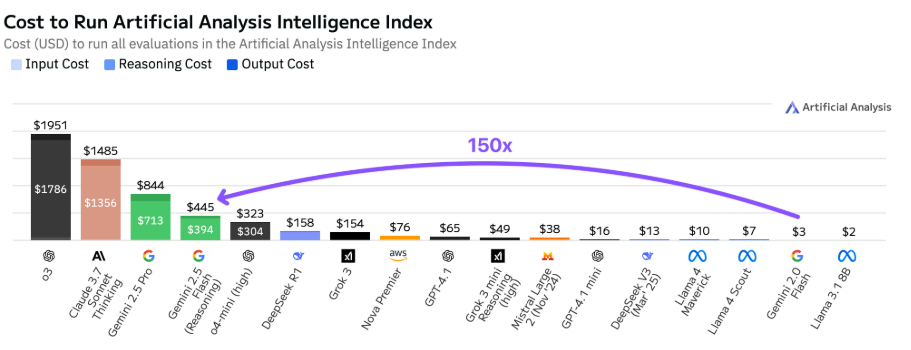Ad
Ad
Ad
Ad
Ad
Ad
Ad
Artificial Intelligence: News, Business, Research
Reasoning tasks sharply raise AI costs, according to a new analysis by Artificial Analysis. Google's Gemini Flash 2.5 costs 150 times more to run than Flash 2.0, due to using 17 times more tokens and charging $3.50 per million output tokens with reasoning, compared to $0.40 for the earlier model. This makes Flash 2.5 the most expensive model in terms of token use for logic. OpenAI's o4-mini costs more per token but used fewer tokens overall, making it cheaper in the benchmark.

SoundCloud changed its terms of use in February 2024 to allow uploaded music to be used for AI training. AI copyright activist Ed Newton-Rex spotted the change and said that users were not informed. In a statement, SoundCloud said it does not train AI models with artist content, does not build its own AI tools, and blocks third-party scraping. It said AI is only used internally for things like recommendations, fraud detection, and content sorting. Artists keep control of their work, and all AI use follows existing license deals. However, the statement does not clearly rule out general AI training.